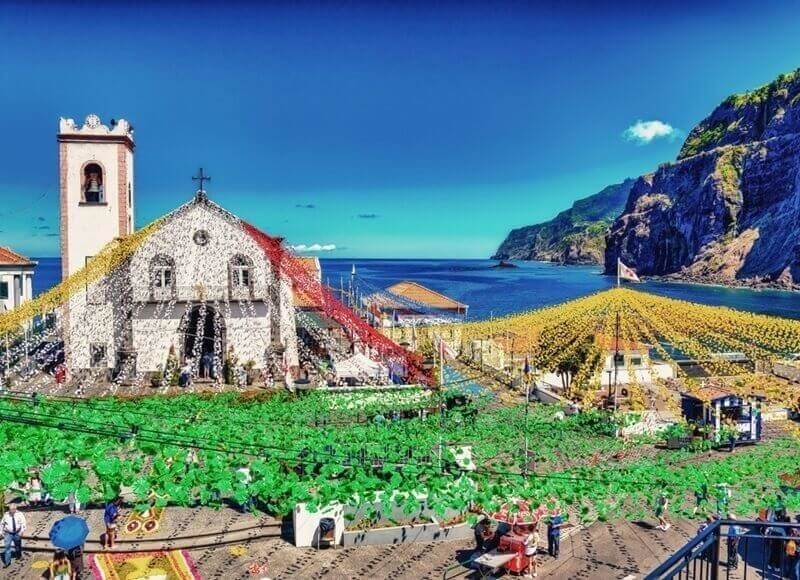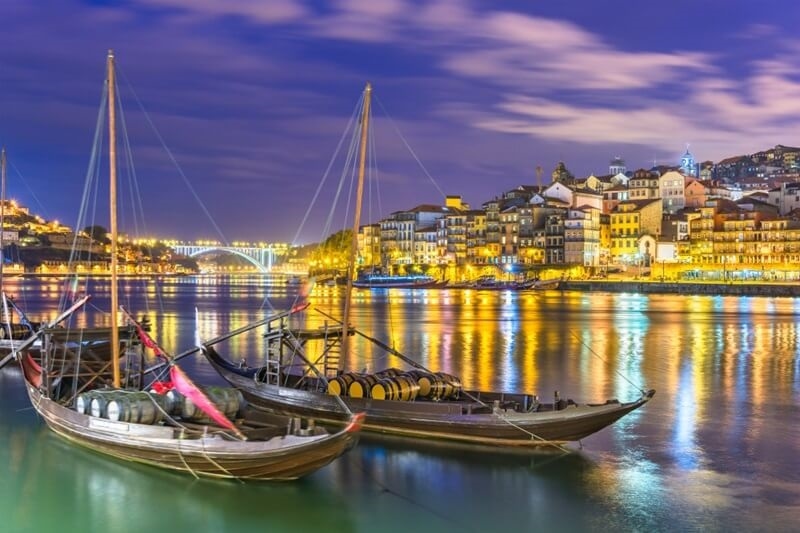
Portugal is a destination where sea, history, and culture converge to create a personality. For American tourists, Portugal is less about visiting pretty villages or topless beaches—it is immersing in centuries-old tradition, sailing heritage, and local richness. Along the Algarve south coast with Algarve traditions, to Atlantic-sea fishing villages, Portugal's fishing culture and heritage is unseen.
At the core of Portuguese identity are local traditions, or tradições locais. They were handed down across generations and symbolize the Portuguese way of life, values, and love of community. Celebrations form part of them. A case in point is that the Algarve celebrates Festa de Nossa Senhora da Piedade, an annual celebration that incorporates religious devotion, music, and social celebration. Parades of villagers come to pay respect to their patron saint, illustrating how Portuguese local culture has a tendency to blend religion and social life.
Food is yet another symbol of Portugal's local traditions. Bacalhau (cod with salt), caldo verde (green broth), and pastéis de nata (tarts with custard) are not just food but also symbols of hospitality and family gatherings. Residents of small towns maintain traditional recipes from previous influences and home flavors. The consumption of those meals is usually a celebration or ritual for residents, perpetuating Portugal local traditions among residents and visitors alike.

Portugal's fishing culture is one of the shared characteristics of coastal identity. Fishing is a vocation, but also a life, and it has defined the rhythms of human beings for centuries. Coastal villages such as Nazaré, Cascais, and Peniche are renowned for their rich fishing culture. The ocean is the center of village life in these villages, and fishermen set out on the ocean at sunrise, come back with new catches, and supply local markets.
Portuguese devotion to sustainable fishing is particularly worth noting. The ancient ways of fishing, like artisanal net fishing, reflect knowledge of the ocean's biology and respect for sea animals. The Portuguese culture of fishing is also reflected in eating habits, with freshly caught seafood being the staple of meals served by beachside restaurants. This blend of living, nutrition, and cuisine art reflects a feature of Portugal's coastline culture.
The Algarve itself is a hub of Portugal local culture and seaside tradition. Known for its golden beach, rocky coast, and whitewashed hill village hamlets, the Algarve is a combination of natural beauty and stern tradition. Apart from the religious festivals, folk dance, music, and handicrafts are also part of Algarve traditions. Traditional Algarve folk dances like the vira and traditional folk songs, or cantares, are danced and sung on celebratory days, and therefore, the true spirit of culture is maintained.
Algarve cuisine is based on the sea-based affinity of the area. Seafood cataplana de marisco and amêijoas à bulhão pato (clams with garlic and cilantro) cuisine reflects the fishery culture and beach heritage of Portugal. Bazaars of villages are occupied with locally caught fresh fish, colorful vegetables, and handmade artisan products, where Portugal cultural way of life can be experienced firsthand.
Seaside rituals constitute the identity of Portugal. Beach town traditions and religious rituals are sea-directed, demonstrating the religious bond among people and the ocean. Fishermen themselves or fishermen's families, for instance, for Póvoa de Varzim, perform the romaria to Chapel of Santa Trega so they can be blessed with safe journey and a successful harvest at sea. These rites are among the seaside Portugal rituals that include religion, society, and sea life.
Similarly, in Algarve, Festa de Nossa Senhora da Piedade is a sea procession during which boats are decorated and sacrifices are made to the sea. Customary in Portuguese coastal rituals is usually music, prayer, and locally-based traditions that reaffirm the coastal communities' relationship with the sea that sustains them. For U.S. visitors, witnessing such events gives one a glimpse of Portugal's culture that is uncharacteristic yet says a lot about the nation's ongoing regard for the sea.
Not only are beaches in Portugal stunning coastlines—they are repositories of heritage too. Praia da Marinha's rocks, Praia do Amado's waves, each shoreline has a sea and life history passed on that goes back centuries. Beach heritage in Portugal is intertwined with fisheries culture, in which fishermen maintain their pescaria (fishing) and perceive gathering (barnacles) to this day.
These traditions are not only economically important and culturally valuable but also maintain centuries of accumulated knowledge that is transferred from one generation to the next. Portugal beach heritage also involves communal celebrations, festivities, and leisure time traditions which represent a sea- and community-influenced lifestyle.
The life of the Portuguese is a mix of the old-world and traditional ways and the new influences. Although the younger generations are less likely to enjoy modernism, they also value the traditions that form the essence of their heritage. The sounds of the Fado music fill the streets in Lisbon and Porto, a proof of the country's emotional romance with its heritage. In the meantime, modern art museums, trendy restaurants, and upscale festivals are a product of the revolutionary character of the nation's culture.
Portugal way of life is experienced in food, festivities, and in everyday life too. Traditional cuisine is reinterpreted through foodways that are modern, and ancient architecture is reutilized for a new purpose, with the dialogue with the past being maintained. Portugal cultural way of life manifests in the manner in which communities celebrate seasonal holidays, local produce and vegetables, and coastal traditions, thus enabling visitors to live history as much as modern life.
Portugal heritage tourism offers the visitor a chance to witness the richness of the local coastland heritage and traditions. From Alentejo megalithic monuments to Douro Valley vineyards, heritage tourism is preserving the past while offering deserving experiences to travelers. Travelers can witness traditional festivals, explore ancient castles, shop at artisan's markets, and relish authentic regional delicacies—none of them, all part of Portugal's heritage tale.
Heritage tourism is particularly vibrant in the Algarve. Its old towns, such as Tavira and Silves, have Moorish heritage in terms of architecture, cobblestone streets, and medieval castles. Algarve tradition is present in traditional handicraft, ceramics, and fabric, most of which are still manufactured using traditional techniques. From these activities, tourists can sample Portugal local tradition, sea rites, and cultural lifestyle, so that heritage tourism can be an enriching experience.
Portugal festivals are among the key elements of maintaining local culture and experiencing the coastal lifestyle.
The stories have the potential to emphasize the importance of the sea, fishing heritage tradition, and sea coastline tradition, and so become a part of Portugal cultural way of life.
Culinary Traditions: Food as Cultural Heritage
Food is the pillar of Portuguese local culture. From a raw fish to a sweet pastry, food culture brings human beings together with nature and past. On the port of Portugal, Portugal fishing tradition is maintained through dishes prepared according to generation-to-generation recipes.
The Algarve food is itself living proof of such a heritage. Seafood stews, grilled sardines, and herb-covered clams are not only delicious, they're living proofs of Algarve heritage too. Food festivals, cooking courses, and food bazaars provide one with the opportunity to experience Portugal cultural life in actual, experiential terms, as a proof of the country's initiative to preserve its heritage.
Portugal's indigenous culture and coastal heritage are preserved at the local level by the people through preservation, education, and tourism. Through heritage tourism, Portugal's coastal communities, like the Algarve preserve beach rituals, fishing tradition, and culture in contemporary life. Preservation efforts preserve marine ecosystems, cultural arts, and historic buildings so that the coastal culture of Portugal is preserved.
Tourists participating in Portugal heritage tourism not only have the opportunity to see the scenery of the country, but contribute to maintaining long traditions as well. From the festive parties of the locals to visits to rural towns, tourists have the opportunity to experience the soul of Portugal local traditions and contribute to their maintenance.
For the traveler who wishes to have the authentic experience, there is in Portugal a combination of new and old wherein indigenous culture is blended with contemporary influences, and life at sea is a constant expression of the people shaped by seascape culture. American travelers are able to experience Portugal cultural way of life through cultural heritage tourism, engage with the host population, and bring home memories that encapsulate the essence of this amazing country.
This content was created by AI